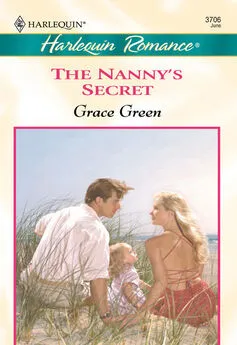Greg Iles - The Devils Punchbowl
- Название:The Devils Punchbowl
- Автор:
- Жанр:
- Издательство:неизвестно
- Год:неизвестен
- ISBN:нет данных
- Рейтинг:
- Избранное:Добавить в избранное
-
Отзывы:
-
Ваша оценка:
Greg Iles - The Devils Punchbowl краткое содержание
With his gift for crafting “a keep-you engaged- to-the-very-last-page thriller” (USA Today) at full throttle, Greg Iles brings back the unforgettable Penn Cage in this electrifying suspense masterpiece.
A new day has dawned . . . but the darkest evils live forever in the murky depths of a Southern town.
Penn Cage was elected mayor of Natchez, Mississippi—the hometown he returned to after the death of his wife—on a tide of support for change. Two years into his term, casino gambling has proved a sure bet for bringing new jobs and fresh money to this fading jewel of the Old South. But deep inside the Magnolia Queen, a fantastical repurposed steamboat, a depraved hidden world draws high-stakes players with money to burn on their unquenchable taste for blood sport and the dark vices that go with it. When an old high school friend hands him blood-chilling evidence, Penn alone must beat the odds tracking a sophisticated killer who counters his every move, placing those nearest to him—including his young daughter, his renowned physician father, and a lover from the past—in grave danger, and all at the risk of jeopardizing forever the town he loves.
From Publishers Weekly
Iles's third addition to the Penn Cage saga is an effective thriller that would have been even more satisfying at half its length. There is a lot of story to cover, with Cage now mayor of Natchez, Miss., battling to save his hometown, his family and his true love from the evil clutches of a pair of homicidal casino operators who are being protected by a homeland security bigwig. Dick Hill handles the large cast of characters effortlessly, adopting Southern accents that range from aristocratic (Cage and his elderly father) to redneck (assorted Natchez townsfolk). He provides the bad guys with their vocal flair, including an icy arrogance for the homeland security honcho, a soft Asian-tempered English for the daughter of an international villain and the rough Irish brogue of the two main antagonists. One of the latter pretends to be an upper-class Englishman and, in a moment of revelation, Hill does a smashing job of switching accents mid-sentence.
The Devils Punchbowl - читать онлайн бесплатно полную версию (весь текст целиком)
Интервал:
Закладка:
My decision to run for mayor threw our differences into stark relief and ultimately made the relationship untenable. Caitlin came to Natchez as a flaming, Ivy League liberal with no experience of living in the South, but after five years here, shed developed ideas more racist than those of many good ol boys Id grown up with, and she was ready to get out. Our sharpest points of contention were (a) whether the city was worth saving, and (b) if so, was I the person to save it? Caitlin claimed that people get the government they deserve, and that Natchez didn't deserve me.
She did, in her view, and added the argument that Annie deserved a culturally richer childhood than she would have here. In short, Caitlin wanted me to leave my past behind. But true Southerners don't think that way. I was willing to risk being turned into a pillar of salt, if by so doing I could help renew the city and the land that had borne me. More than this, I believed that living closely with my parents would provide my daughter an emotional bedrock that no amount of cultural diversity would ever replace. In the end, I followed my conscience and my heritage, ensuring that my future marriage became the first casualty of my mayoral campaign. Caitlin criedas much for Annie as for usthen wished me well and went back to North Carolina, to the New South of glass office towers, boutique restaurants, and the Research Triangle. I stayed in the land of kudzu and Doric columns and bottleneck guitarsone short ride away from James Dickeys Land of Nine-Fingered People.
Theres no denying the light glowing softly through the curtain in the upper room across the way. But if Caitlin has returned to Natchez, shes most likely come back in some connection with the Balloon Festival. Still, something else might have influenced her unexpected appearance, and its worth considering. Ten days ago I ended my relationship with Libby Jensen, after seeing her for nearly a year. Was ten days sufficient time for that news to reach North Carolina? Of course. One e-mail from a gossipy Examiner employee would have done it, and a text message would be even faster. If Caitlin has returned, her timing is certainly suggestive.
The casino file has grown damp under my shirt by the time I climb the porch and reach for my front door. Before my hand touches the knob, the door squeaks open, startling me, and the tenth-grade honor student who babysits Annie speaks uncertainly through the crack.
Mr. Cage? Is everything okay?
Because of my experiences with Mia Burke, the senior who used to sit for Annie, I no longer allow babysitters to use my first name. Everythings fine, Carla. What about here?
She pulls back the door, revealing her blue-and-white jumper and eyes red from sleep or studying. Yeah. I was kind of scared, though. I heard the car stop, but then you didn't come in
I smile reassuringly and follow her inside, keeping the file pressed inside my shirt with my left hand while I dig for my wallet with my right. Having no idea how long I've been gone, I pull a couple of twenties and a ten from my billfold and give Carla permission to go with a wave.
Annie did all her homework, she says, slinging a heavy backpack over her slight shoulder. Papers written.
Did she do a good job?
Honestly? Carla laughs. That girl knows words I don't know. Id say shes about one year behind me, gradewise.
I feel the same way sometimes. Thanks again. What about this weekend?
Carlas smile vanishes. Um maybe some late at night, if you need me. But I'm going to be at the balloon races most of the time. They have some decent bands this year.
Okay. Any time you can spare, I'll pay you extra. This weekend is crazy for me.
She smiles in a way that doesn't give me much hope.
After closing the door behind Carla, I pour a tall iced tea from the pitcher in the kitchen fridge, carry it to the leather wing chair in my library, and spread the file open on the ottoman.
Golden Parachute Gaming Corporation pitched itself to the city as the Southwest Airlines of the casino industry. Capitalized by a small, feisty group of partners led by a Los Angeles entertainment lawyer, the company evolved a strategy of moving into secondary gaming markets and undercutting the competitions prices in every way possible, while simultaneously providing personable and personalized service, even to its less moneyed patrons. They run a phenomenally efficient operation, but whats opened many stubborn doors for them is their practice of forming development partnerships with the communities they move into, building parks, ball fields, community centers, and even investing in the development of industrial parks in some cities. Small town officials eat this up, and Natchez was no exception.
More than anything, though, Golden Parachutes success in penetrating our market came down to timing. They applied for their gaming license in the aftermath of Toyotas disastrous decision to build a new plant in Tupelo versus Natchez. Citizens were bitter about the lost jobs and ready to climb into bed with someone elsealmost anybody elseon the rebound. Golden Parachute already had successful casinos up and running in Tunica County, near Memphis, and Vicksburg, just sixty miles north of Natchez. With that track record, they had no trouble getting local heavyweights to lobby the state gaming commission to grant a fourth license for Natchez.
Bringing another casino boat to town had not been one of my goals when I ran for mayor. (In truth, none of the floating casinos are navigable vessels; they are barges built to look like paddle wheelers from the era of Mark Twain, but at five times historical scale.) My platform was reforming education and revitalizing local industry. But after considerable persuasion by the board of selectmen, I agreed to help close the casino deal. My reasons were complex: exhaustion in wake of the Toyota failure; a savior complex running on adrenaline after the depletion of my initial inspiration; disillusionment with my colleagues in government and with many of the citizens I was supposed to be serving. I was also frustrated that the board of selectmen were often divided along racial lines: four black votes and four white, with me the deciding factor. I voted my conscience every time, but few people saw it that way, and with every vote, I lost more allies on one side or the other. The only thing the board could agree on was any proposition that could bring money or jobs to their constituencies. And so Golden Parachute found a receptive audience for its sales pitch.
The problem, as it so often is with casinos, was site approval. Golden Parachute wanted to moor the Magnolia Queen on riverfront property donated to the city by a prominent Natchez familythe Piercesby means of a complicated trust. One stipulation of
that trust was that Pierces Landing never be developed as a casino or shopping mall while the matriarch of the family remained alive. Inconveniently for the selectmen, Mrs. Pierce had lived to the ripe old age of ninety-eight, and she was still, as the saying goes, as sharp as a tack. That tack lay directly in the path of the inflated giant that was the Golden Parachute deal.
My first instinct was to try to persuade the company to find another property, but the company wouldn't budge. Golden Parachute wanted the Pierce land, which was not only the last suitable river property within the city limits, but also the finest, barring the Silver Street spot taken by Lady Luck, the first riverboat casino in the state. Predictably, Golden Parachute began making noises about scrapping its plan to come to Natchez, and just as predictably the selectmen went into panic mode. I heard whispers about the new eminent-domain law, which allowed the government to seize private land for commercial development. I viewed this as one of the most anti-American laws ever put on the books, but my fellow officials did not share my feelings. Only Selectman Paul Labry stood with me in resisting this Stalinist move. Desperate to prevent the use of this tactic, Labry and I quietly went into action.
First we met with one of the Pierce heirs, whod graduated several years ahead of me at St. Stephens. He got us a copy of the actual document governing the trust, which few people had seen, outside the preservationists whod helped to write it, and the former mayor, whod died of lung cancer shortly after leaving office. To my surprise, I discovered that Mrs. Pierce possessed the authority to unilaterally revoke the clause preventing casino development. Disturbed by the boards increasing clamor to seize the land in question, I requested an audience with the grand old dame of Pierces Landing.
I met the distinguished lady in a conference room at Twelve Oaks Gardens, an assisted-living facility on the outskirts of town. As the granddaughter of an officer who had served under General J. E. B. Stuart at Gettysburg, Mrs. Pierce presided over an entire wing of the facility like a dowager empress. Her children had offered to take her in, but they had all settled in other states, and Mrs. Pierce preferred to remain in the city shed lived in all her life, and to be around people rather than to live in her mansion with round-the-clock nurses (or watchers, as she called them, as in Theyre here to watch me
have my final heart attack.) Mrs. Pierce granted me the audience because my father had treated her for more than thirty years, and because, she told me, she had enjoyed several of my novels on tape. At ninety-eight, she confessed with some embarrassment, her eyes were not what they had once been.
For the best part of an hour, I made the case for allowing a casino riverboat to be moored to her ancestral land. Early in our conversation, I discovered that Mrs. Pierce was neither a religious zealot nor a hidebound moralist. She confided that her father had hated gambling in all its forms, not least because his brother had lost a fine home and several hundred acres of farmland during a drunken poker game. She also mentioned that forty years earlier shed become aware of quite a bit of unpleasantness going on across the river, all related to gambling. One of her maids had actually been accosted on the road by men whod believed she was a prostitute. After realizing the basis of her objections, I pointed out that legalized casino gambling was far different from the illicit juke-joint operations she remembered. Gambling was now a legitimate industry of strictly regulated corporations that had brought prosperity to our struggling state. In making this argument, the numbers were all on my side.
Legalized casino gambling lifted Mississippis Tunica Countyonce the poorest in the United Statesfrom wretched poverty to wealth in fifteen years. A rural county serviced by open sewer ditches in 1991, Tunica has doubled its per capita income while going from two thousand total jobs to over seventeen thousand. Theyve invested $40 million in school improvements, poured millions into police and fire protection, built a sports arena, doubled the size of their library, and invested over $100 million in their road system. Statewide, the verdict on gambling is beyond question. Since 1992, the casino industry has come to provide nearly 5 percent of the states total tax revenue.
Despite Mrs. Pierces suspicion that vice is vice, whatever cloak it wears, I knew I was making headway when she told me that shed always chastised her friends who had blindly resisted change and felt they had hobbled the citys efforts to keep pace with the rest of the country. I knew I was almost home when she said softly that shed never imagined she would gaze down the hill that led to her
Читать дальшеИнтервал:
Закладка:





![Джеймс Купер - Пионеры, или У истоков Саскуиханны [The Pioneers, or The sources of the Susquehannah]](/books/1066142/dzhejms-kuper-pionery-ili-u-istokov-saskuihanny-t.webp)




